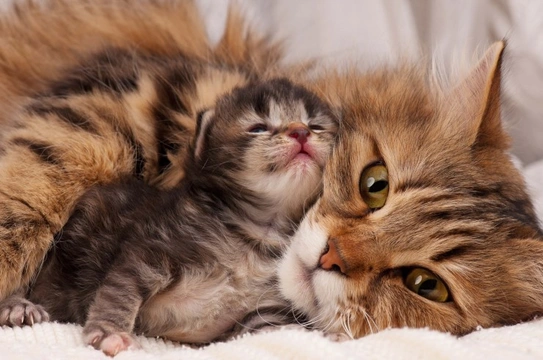
How to Select a Responsible Cat Breeder: Essential Guide
If you have decided that you have room in your heart and home for a new cat, and you’re set on a pedigree kitten, making the right choice about which breeder to trust is crucial. Responsible breeders focus on improving their breed, ensuring the health, happiness, and welfare of both their kittens and breeding cats.
This guide covers vital steps to help you find a responsible cat breeder, with practical advice and questions to ask to avoid unethical breeding practices and support genuine breeders committed to lifelong cat welfare.
1. Availability of Breeders: Understanding Your Options
The number of breeders available near you depends on the breed you desire. Common pedigree breeds such as the Persian and Siamese usually have several breeders across the UK. More exotic breeds like the Bengal may be less prevalent, so your choices might be limited.
It is essential to evaluate each breeder carefully; availability alone is not a guarantee of responsible practices. Prioritise quality over convenience to support ethical breeding.
2. Check for Registered Breeder Status
The Governing Council of the Cat Fancy (GCCF) oversees pedigree cat registration in the UK and offers a registered breeder scheme. While registration alone does not guarantee responsible breeding, buying from a registered breeder provides assurance that they adhere to certain standards concerning breed purity and animal care.
Ask breeders to confirm their registration and review associated documentation to increase confidence in your choice.
3. Seek Recommendations and Do Your Research
Before contacting breeders, research online for reviews, sales patterns, and feedback from previous buyers. Beware of any negative experiences or red flags reported by others.
Speak to your vet, local cattery staff, pedigree cat owners, or professionals in specialist pet stores, as they often know reputable breeders and can provide trustworthy recommendations.
4. Visit the Breeder in Person
A visit allows you to observe the breeder’s facilities firsthand. Look for clean, safe, and enriching environments where cats are clearly well cared for. Notice the number of cats present, their general condition, and their behaviour. Happy, healthy, well-socialised cats indicate good breeding practices.
Beware of breeders who keep cats in cramped, unclean, or stressful conditions, or those who appear uninterested in their animals’ welfare.
5. Discuss Breed Health and Genetic Screening
Talk openly with the breeder about the health of their breeding cats and their lines. Responsible breeders conduct thorough health screenings, including tests for hereditary conditions relevant to the breed. They should be willing to share veterinary records, health certificates, and any screening results.
Ask about any known hereditary health issues in their cats and how they mitigate risks through selective breeding and care.
6. Choose a Breeder Interested in Your Commitment
A responsible breeder cares about the future wellbeing of their kittens. They will ask about your experience with cats, knowledge of the breed you want, and your plans for their care.
If a breeder seems disinterested in you or does not ask questions about your home or lifestyle, this may be a warning sign. Ethical breeders want to ensure their kittens go to suitable, loving homes.
7. Take Your Time: Avoid Rushing Your Decision
Never rush to take a kitten home on your first visit. Take several days to consider your choice and possibly arrange a second visit. Responsible breeders respect this and do not pressure you to make an immediate decision.
If you decide to buy, you may be asked for a deposit to hold a kitten, but kittens should only leave their mother once they are at least 12 weeks old; many breeders keep kittens until 14-15 weeks to ensure they are fully ready.
8. Review Contracts and Guarantees Carefully
Reputable breeders will provide a contract outlining terms of sale, health guarantees, and requirements such as spaying or neutering. Before committing, review the contract carefully and ask questions if anything is unclear.
This contract supports responsible ownership and offers protections for both you and the breeder, ensuring veterinary support if health issues arise.
What to Ask When Buying a Kitten
- Are the kittens and parents health tested for breed-specific conditions?
- Can I meet or see the kitten’s parents?
- What vaccinations and worming have the kittens received?
- Is the breeder registered with GCCF or other reputable associations?
- What socialisation and handling do the kittens receive before sale?
- What advice and support do you provide after purchase?
- What terms are set in the contract regarding animal care and future breeding?
Conclusion
Choosing a responsible cat breeder means prioritising ethical practices, health, and lifelong welfare over appearance or immediate availability. By researching, visiting, asking the right questions, and listening to your instincts, you ensure you bring home a healthy, happy kitten from a breeder who cares deeply about their cats.
If you’re ever unsure, adopting from a shelter is always a wonderful option where health and temperament are professionally assessed. Your new feline friend deserves the best start and a loving, responsible home.



